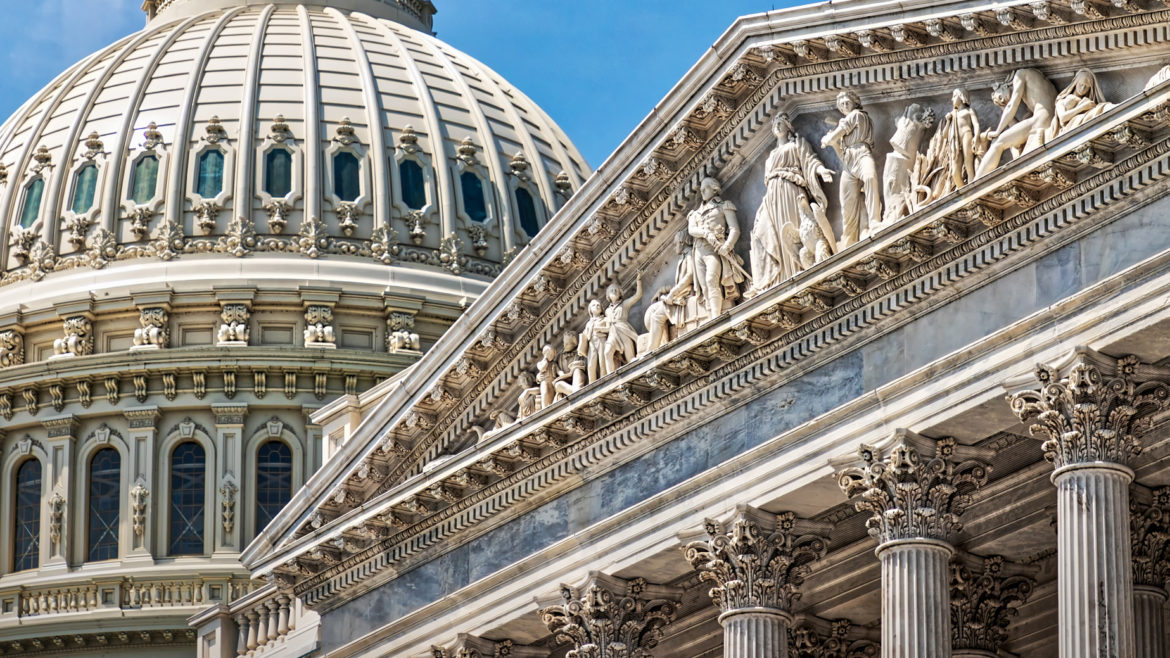Supporters of the Consumer Financial Protection Bureau may have hoped that the recent U.S. Supreme Court ruling finding its funding mechanism constitutional would calm its critics. If so, last week would have dashed those hopes. Congressional hearings showed that the CFPB remains at the center of a disagreement between the political parties about the role of government in protecting citizens.
During the week of June 10, at hearings on both sides of the U.S. Capitol, CFPB Director Rohit Chopra was supposed to be presenting the bureau’s semi-annual report to Congress. However, there was little discussion of that report by members of Congress. Instead, the members of both parties took the hearings as an opportunity to portray the agency as they perceived it. This resulted in vastly different pictures of the CFPB.
Democrats said Chopra is doing a fine job and the CFPB is accomplishing its mission, while Republicans accused Chopra of operating a rogue agency that is doing the bidding of the Biden Administration.
As the Senate Banking Committee began its hearing on Wednesday, ranking Republican Sen. Tim Scott of South Carolina complained, “Time after time, your agency brushes aside congressional concerns, forges ahead with political agendas, and pushes well past the boundaries of its authority.”
Democrats, on the other hand, applauded Chopra’s efforts on such issues as credit card late fees and overdraft fees. As the House Financial Services Committee started its Thursday hearing, ranking Democrat Rep. Maxine Waters of California said, “Under the leadership of Director Chopra, the CFPB is combatting excessive and illegal junk fees, fighting against housing discrimination and redlining, and holding megabanks accountable for breaking the law and harming consumers.”
The issue of so-called junk fees was front and center at the House and Senate hearings. The Biden Administration has called for elimination or decreases in fees such as overdraft and credit card late fees. The administration contends that such fees hide the true cost of products and services.
Republicans and financial services trade groups argue that consumers are aware of the fees when they sign up for products and services. “You’re not protecting consumers or saving people money, instead you’re peddling a false narrative that the Biden administration is doing something to reduce the actual costs,” Scott told Chopra.
Senate Banking Committee Chairman Sen. Sherrod Brown, D-Ohio, disagreed with Scott. “Junk fees are the surprise, often last-minute charges that drive up the cost of products,” he said. “They have no justification or connection to anything other than corporations’ thirst for profits.”
Since Republicans are viewing the CFPB as an agency under a Democratic president’s control, they want more congressional influence over it. One way is funding. The current funding mechanism of the CFPB is deliberately designed to insulate it from political pressure. While the U.S. Supreme Court last month found the agency’s funding mechanism constitutional, congressional Republicans made it clear that they continue to oppose allowing the agency to be funded through the Federal Reserve system.
Republicans indicated at the hearings that even though the court did not require a change in the funding process, they will continue to push to make the CFPB funded directly through the congressional appropriations process. “I want to be clear that their decision on the CFPB’s funding structure only increases my concerns about the agency’s lack of accountability,” Scott said.
Sen. John Kennedy, R-La., went further, contending that the agency’s funding is illegal. He said during Wednesday’s hearing that the agency is supposed to be funded by funds earned by the Federal Reserve. “For the longest time, the Federal Reserve was earning money, but that stopped in what, September of 2022?” Kennedy asked. “Now, they are losing money. They don’t have any earnings.”
“How are you entitled to any money right now?” Kennedy asked Chopra. “The Federal Reserve doesn’t have any earnings.”
Chopra replied, “Well, we’ve heard of this theory. I think it’s one of the latest.” Kennedy responded that it was not a theory, it is federal law.
House Financial Services Committee Chairman Rep. Patrick McHenry, R-N.C., said he had a solution to the funding problem. “Republicans have a legislative solution to make the bureau more transparent and accountable to the American people,” he said. “This is something we should all be in favor of.”
The Republican idea is to place the CFPB under the appropriations process. Republicans also would like to transform the CFPB into a five-member commission. The commissioners would be nominated by the president and confirmed by the Senate.
This plan gained traction among Republicans last week, although Democrats are unlikely to accept it. To move the plan forward, the House Appropriations Committee approved an FY25 Financial Services appropriations bill that included the CFPB. Normally the CFPB would not receive money in an appropriations bill.
Republicans on the House Appropriations Committee proposed to provide the CFPB with an appropriation of $650 million in FY25, which House appropriators said is $35 million below the level the agency would be authorized to receive from the Federal Reserve. Basically, they are suggesting a funding cut. The bill also would convert the CFPB, which currently is run by a single director, into a five-person bipartisan commission.
On the Senate side, a group of Republican senators introduced bill S. 4521, legislation that would subject the CFPB to the annual appropriations process. Unlike the House appropriations bill, it does not have a provision to convert the agency into a five-member commission.
“Under Director Chopra, the CFPB continues to brush aside congressional concerns, forge ahead with political agendas, and push past the boundaries of its authority – all to the detriment of the consumers it’s supposed to protect,” Scott, one of the bill’s cosponsors said. “By subjecting the CFPB to the congressional appropriations process, this legislation will increase accountability and help Congress ensure the agency stays true to its mission.”
“President Biden has created a bloated government that is a regulatory nightmare, and it’s time for some accountability,” Sen. Cynthia Lummis, R-Wy., another one of the cosponsors of the bill said. “It is time to subject the CFPB to the appropriations process like other federal agencies to ensure it is accountable to the American people it is supposed to serve.”
Kennedy is also a cosponsor of the bill. He said, “The bureaucratic state is always trying to grab more power and minimize its accountability. CFPB bureaucrats don’t rely on Congress for funding—which means the bureau isn’t accountable to American taxpayers in key ways. That needs to change.”
The House plan has the support of the trade group, America’s Credit Unions. Jim Nussle, president/CEO of America’s Credit Unions, sent the House Financial Service Committee and the Senate Banking Committee a letter endorsing the House Appropriations Committee plan on behalf of America’s Credit Unions.
Nussle’s letters were highly critical of the agency under Chopra’s leadership. “Regardless of how qualified one person may be, including the current director of the agency, a commission would allow multiple perspectives and robust discussion and debate of consumer protection issues throughout the decision-making process,” Nussle wrote.
He criticized the agency under Chopra’s leadership. Nussle said that the CFPB has consistently issued one-size-fits-all rules and has missed opportunities to leverage credit unions’ mission to benefit consumers. “Consumers lose when one-size-fits-all rules force credit unions to pull back safe and affordable options from the market, pushing consumers into the arms of entities engaged in the very activities the CFPB’s rules were designed to curtail,” he wrote. Nussle said that credit unions and CUSOs should be considered for, and receive, appropriate exemptions from some of the bureau’s regulatory requirements.
Instead of regulating and sanctioning traditional financial services providers, Nussle suggested that the CFPB should regulate largely unregulated fintech companies, “If the Bureau spent fewer resources on regulating and supervising credit unions and other small lenders already subject to federal prudential regulation, then it would have more bandwidth to focus on the businesses actively engaged in objectionable practices that exploit consumers.”
Nussle disagreed with the CFPB’s junk fee initiative. “The CFPB and the Administration have repeatedly classified a broad range of ordinary fees in the consumer financial services market as so-called ‘junk fees’ obscuring the true cost of financial services,” he wrote.
Nussle also criticized CFPB officials for making policy outside the formal rulemaking process. “The Bureau’s recent reliance on blog posts, guidance, and even amicus brief filings to issue proclamations regarding the application of consumer financial protection laws is inappropriate and denies stakeholders the opportunity to participate in the statutorily mandated notice and comment process,” Nussle argued.
He wrote that the CFPB should use the formal rulemaking process to set policy. “We also caution against an unproductive and inflammatory ‘regulation by press release’ approach to governance characterized by clearly politicized press releases intended to serve as a bully pulpit.” He continued, “We strongly object to the government’s inflammatory messaging as it is intentionally misleading and clearly wrong-headed. To be clear, credit unions do not assess ‘junk fees.’”
Nussle’s proposals and those of congressional Republicans are unlikely to gain much traction this year. In particular, the GOP plans to convert the agency into a commission and to make it subject to appropriations are unlikely to be enacted. They have been proposed in the past and have been ignored by the Senate, where Democrats generally have been supportive of the CFPB.
During Thursday’s Senate Banking Committee hearing, Sen. Elizabeth Warren, D-Mass., who is credited with developing the concept of the CFPB, commented, “It’s another day that ends in ‘Y’ so Republicans are concocting even more absurd legal arguments and taking even more extreme steps to try to stop the CFPB from doing its work on behalf of American families.”
The Democrats’ position can be best summed up Brown. “Wall Street has lawyers and lobbyists,” Brown said last week. “Working people have the CFPB. I will always fight for its work that gets money back into people’s bank accounts, that stops bad actors from cheating honest families, and that stands up for consumers when they may have nowhere else to turn.”

























































